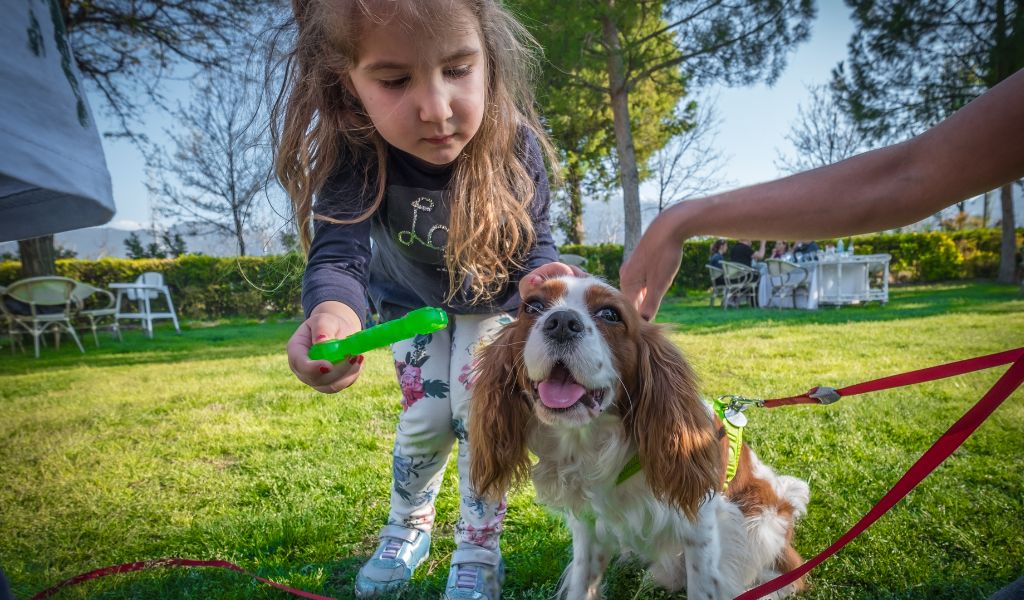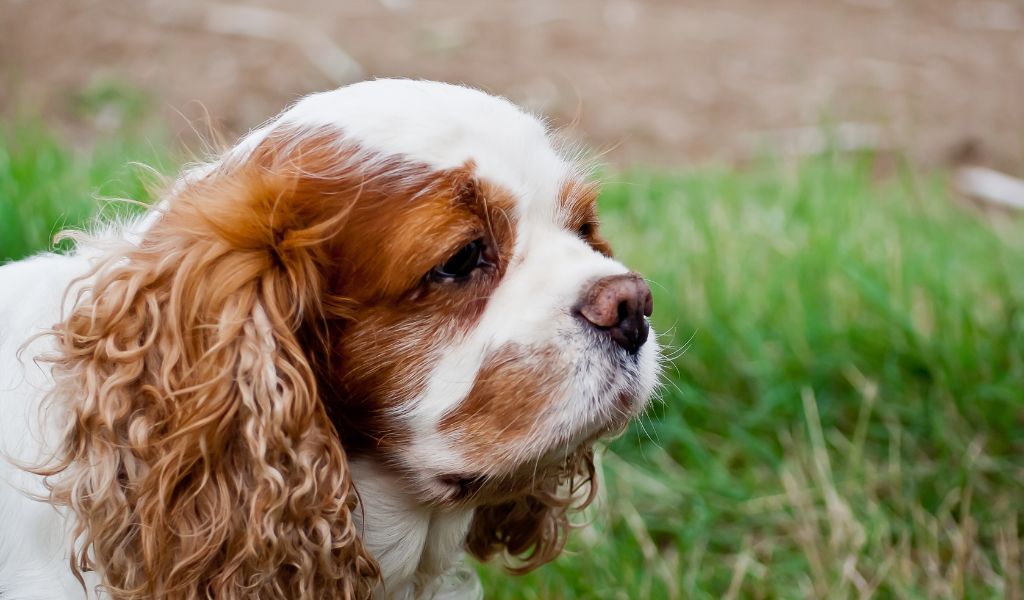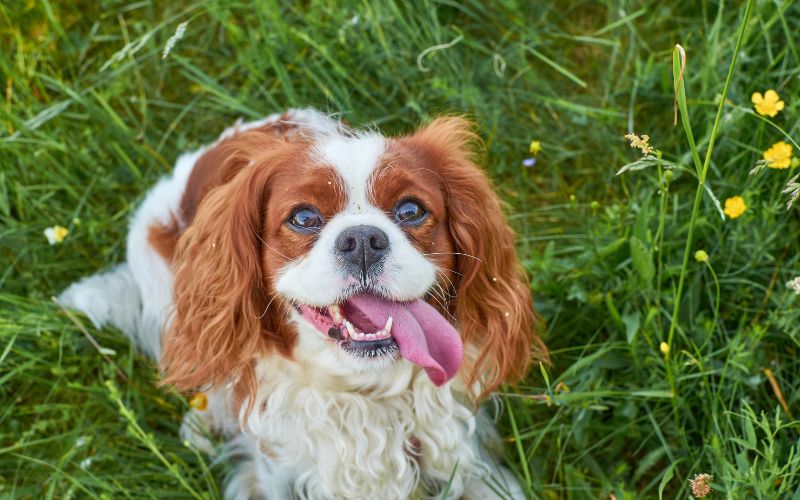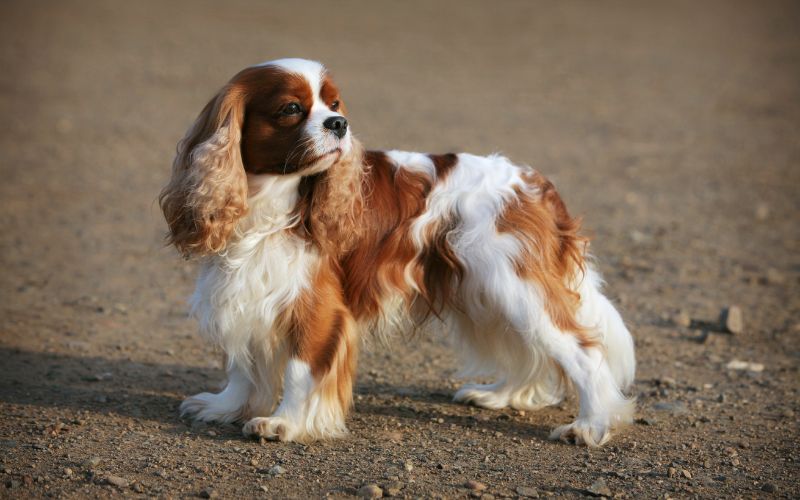If you are the owner of a Cavalier King Charles Spaniel, it is important that you read this blog.
Why? Because Cavaliers are predisposed to a number of health conditions, and it is crucial that you are aware of them so that you can seek veterinary care if necessary.
In this blog, we will discuss 10 health concerns that are common in Cavaliers and why their owners should be aware of them.
So please read on and learn more about your beloved dog breed.
Cavaliers are predisposed to a number of health conditions
As an owner of a Cavalier King Charles spaniel , it is important to be aware that your dog may be predisposed to a number of health conditions.
Some of these conditions include congenital heart defects, mitral valve disease, syringomyelia, and early onset deafness.
While there is no way to prevent these conditions from occurring, it is important to be aware of them so that you can seek veterinary care if necessary.

Eye problems are common in Cavaliers
Cavaliers can be susceptible to a number of eye problems.
One of the most common is progressive retinal atrophy, which is a degenerative disease that leads to blindness.
Cavaliers are also at risk for glaucoma, cataracts, and cherry eye.
While some of these conditions can be treated with surgery or medication, there is currently no cure for progressive retinal atrophy.
This means that affected dogs are likely to become completely blind.
A genetic test is available for this condition to identify affected dogs before they develop any symptoms.
Bladder or kidney stones are common in Cavaliers
Cavalier King Charles Spaniels are also more likely to develop stones that can form in the kidneys or bladder.
These stones can cause a great deal of pain and may require surgery to remove them.
Cavaliers are also at risk for developing urinary tract infections, which can be very painful and may require antibiotics to clear up.

Cavalier King Charles Spaniels are prone to allergies
Allergies are also common in Cavaliers.
Allergies can be caused by a reaction to fleas, food or environmental allergens among other things with a dog’s feet, belly, ears and folds of the skin most commonly affected.
Hay fever can be a particular problem for some Cavaliers as they seem to be more susceptible than other breeds.
Your Cavalier may suffer from separation anxiety
Many Cavalier King Charles Spaniels suffer from separation anxiety when their owners leave them alone.
This can lead to a number of problems, including destructiveness, barking, whining and urinating indoors.
If you think your Cavalier is suffering from separation anxiety, it is important to speak to your veterinarian or a behaviourist who can help you find ways to manage the condition.

Obesity is a common health concern for Cavaliers
Cavaliers are also prone to obesity, which can lead to a number of other health problems such as joint pain, diabetes and respiratory difficulties.
It is important to feed your Cavalier a healthy diet and give them plenty of exercise to help prevent them from becoming overweight.
Dental disease is common in Cavaliers
Dental disease is also common in Cavaliers.
This is generally occurs due to plaque and tartar buildup which can eventually lead to gum disease, tooth loss and infection.
This can have a ‘knock on effect’ on your pet’s overall health and wellbeing and can result in lost teeth, kidney disease, smelly breath and more.
That’s why it’s important to brush your Cavalier’s teeth regularly and have their teeth checked by a veterinarian at least once a year.
Ichthyosis is a common condition in Cavaliers
Ichthyosis is a skin condition that causes the skin to become dry, thickened and scaly.
It is more common in Cavaliers than in other breeds and can be very uncomfortable for affected dogs.
There is no cure for Ichthyosis, but there are ways to manage the condition and make your dog more comfortable.
Cavalier King Charles Spaniels are susceptible to cancer
Cavalier King Charles Spaniels are also at an increased risk for developing cancer. The most common type of cancer seen in Cavaliers is lymphoma.
Other types of cancer that have been seen in the breed include hemangiosarcoma, mast cell tumors and brain tumors.
While there is no guaranteed way to prevent cancer, regular vet check-ups can help catch it early if it does develop.

BOAS is common in Cavaliers
Brachycephalic Obstructive Airway Syndrome (BOAS) is a condition that affects dogs with short noses, such as the Cavalier King Charles Spaniel.
Dogs with BOAS have narrow nostrils and an elongated soft palate.
This can cause respiratory problems, including snoring, difficulty breathing and exercise intolerance.
There is no cure for BOAS, but affected dogs can often be helped with surgery to widen their nostrils or shorten their soft palate.
Cavalier King Charles Spaniels can also suffer from heart disease
Cavalier King Charles Spaniels are also susceptible to heart disease.
The most common type of heart disease seen in the breed is mitral valve disease (MVD).
MVD is a condition that affects the heart’s mitral valve, which can eventually lead to congestive heart failure.
While there is no cure for MVD, affected dogs can often be helped with medication and other treatments.
Final Words
While all of the health concerns mentioned in this article are common in Cavaliers, that doesn’t mean your dog is doomed to suffer from them.
There are many things you can do to help keep your Cavalier healthy and comfortable, including regular vet check-ups, feeding them a healthy diet and giving them plenty of exercise.
If you notice any signs that your dog may be suffering from one of these conditions, don’t hesitate to speak to your veterinarian.




